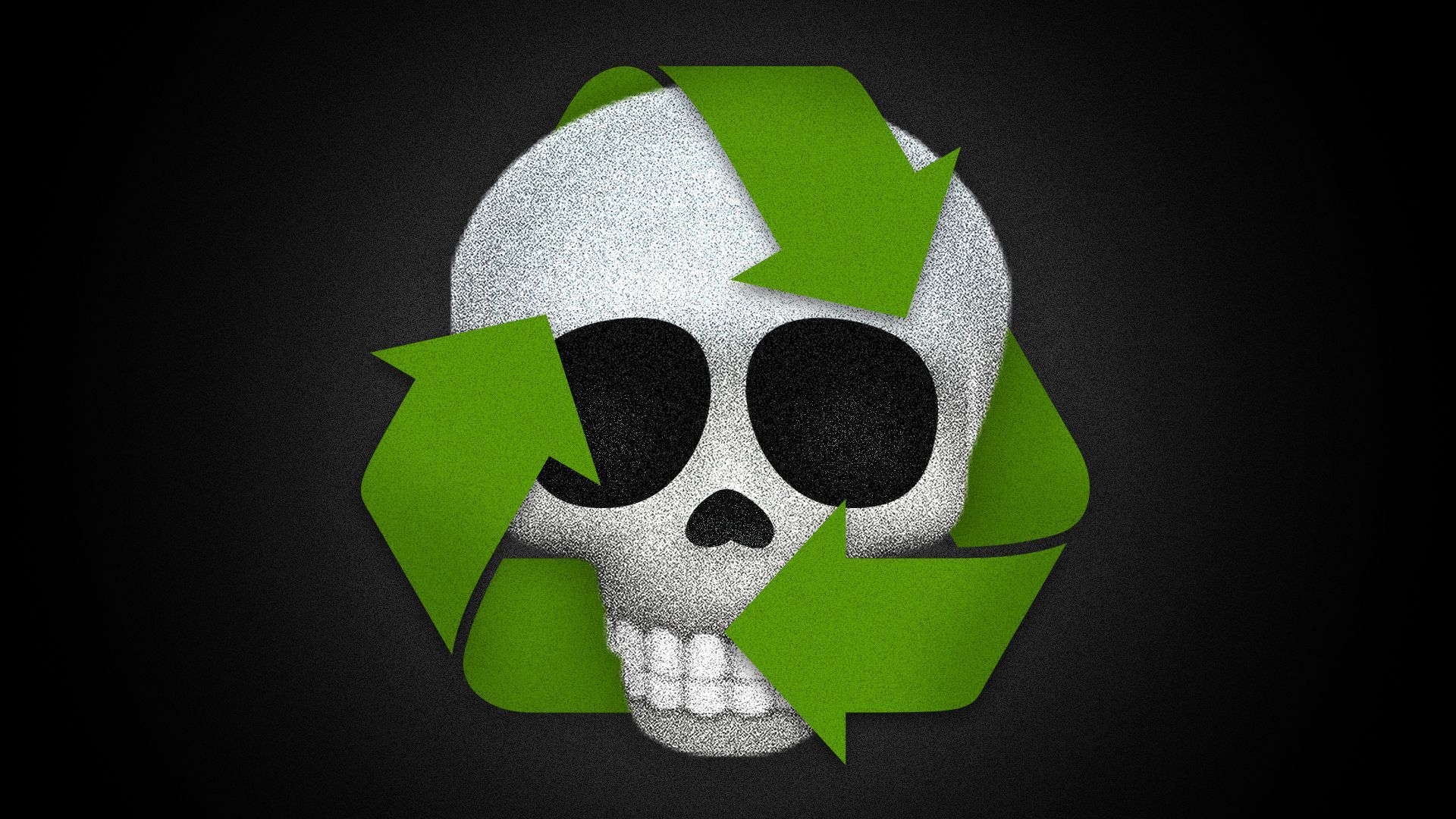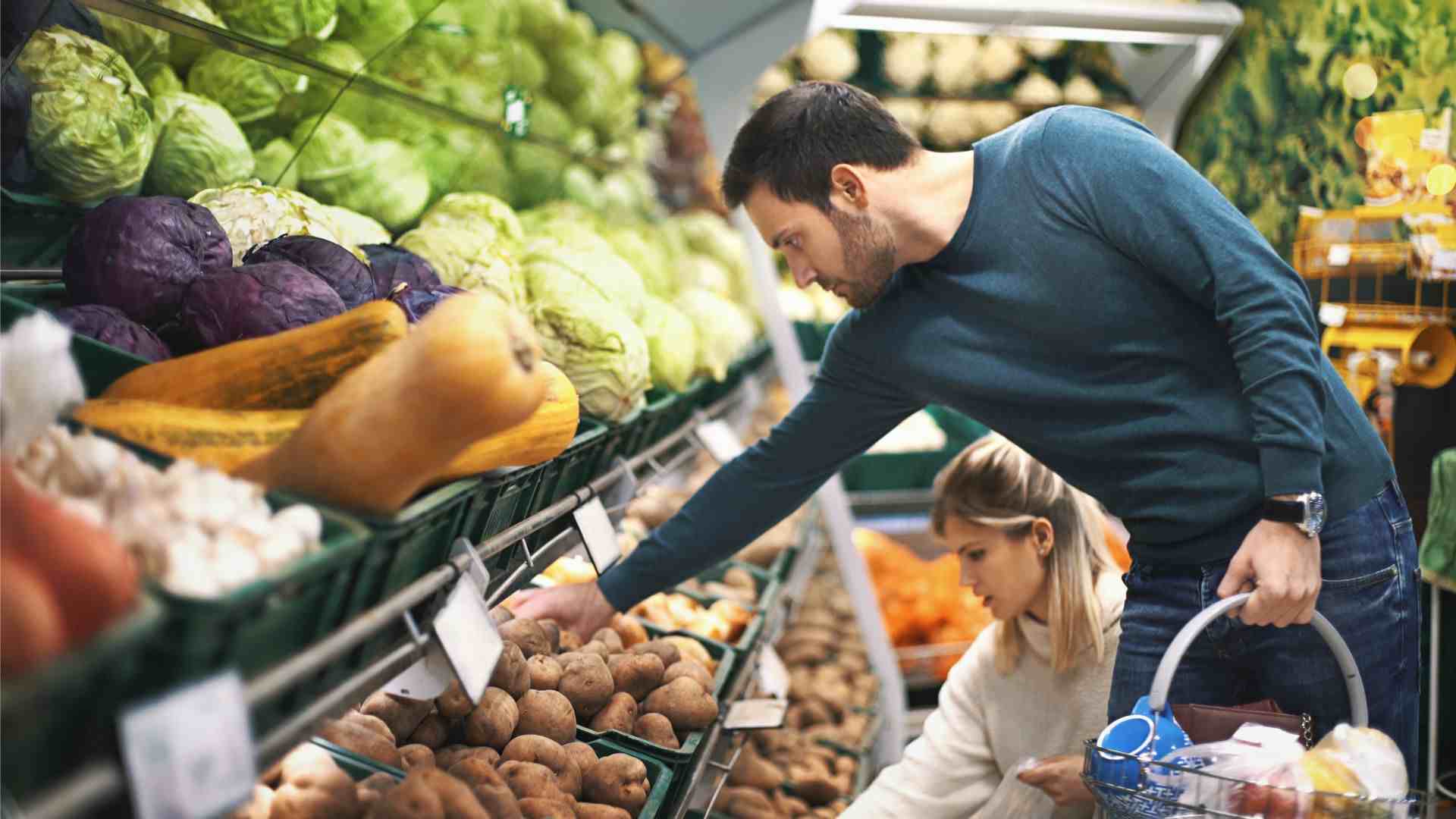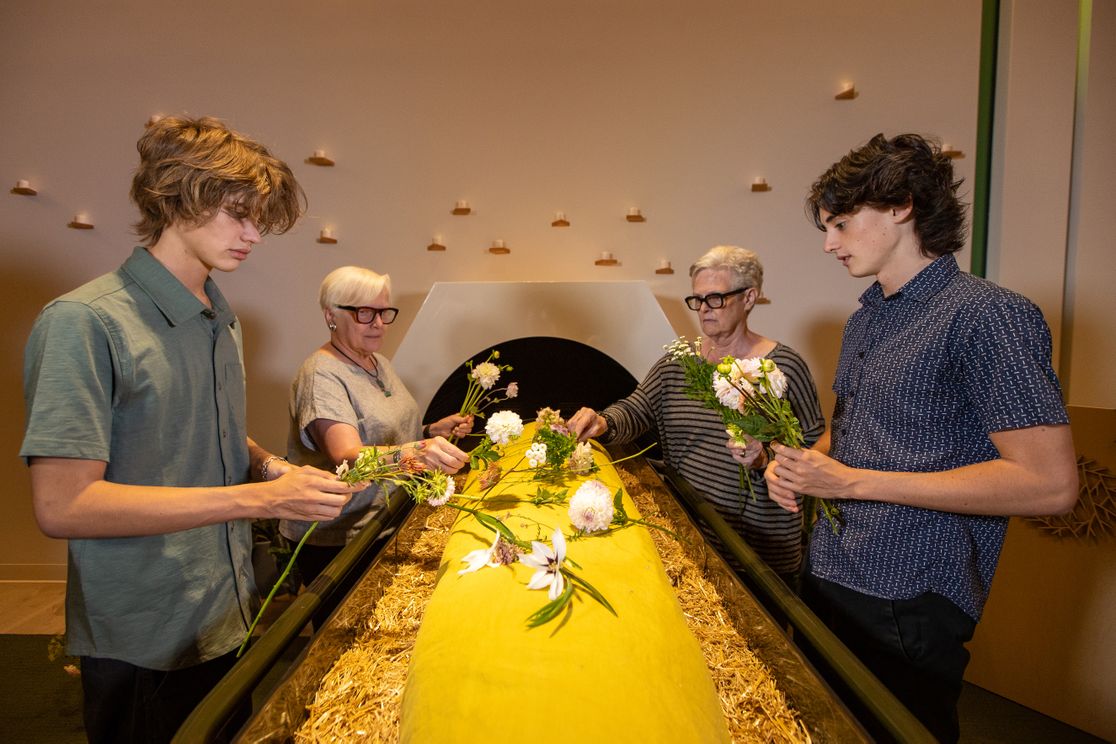| | | | | | | Presented By Upside | | | | Axios What's Next | | By Alex Fitzpatrick, Jennifer A. Kingson and Joann Muller · Nov 21, 2022 | | "Human composting" is a new, environmentally friendly "death care" option, Alex reports today. Today's newsletter is 973 words ... 3½ minutes. | | | | | | 1 big thing: Now trending... "human composting" |  | | | Illustration: Natalie Peeples/Axios | | | | Forget traditional burial or cremation — "human composting" is the hot new thing in death care, Alex Fitzpatrick reports. Why it matters: Deciding what should be done with your remains is a deeply personal matter, and new options don't arise all that often. What's happening: California recently became the fifth U.S. state to legalize human composting, through which a person's remains are turned into usable soil. - It's also been approved in Colorado, Oregon, Vermont and Washington; New York could be next.
- Recompose, a Seattle-based funeral home, is at the forefront of the movement.
How it works: Upon a client's death, Recompose organizes "laying-in ceremonies" similar to traditional funerals. - The body is then placed in a specially designed vessel and surrounded with natural materials, such as wood chips and alfalfa.
- "By controlling the ratio of carbon, nitrogen, oxygen and moisture, human composting creates the perfect environment for microbes and beneficial bacteria to thrive," says Recompose. "These microbes are assisted by mechanical steps to help complete the transformation into soil."
- The process takes around a month and results in about a cubic yard of soil, including the composted plant matter. Non-organic matter (such as dental implants) are sorted out, and the soil is tested.
The deceased's loved ones can then take the entire result, or a smaller portion in an urn-like container, for use in a backyard garden or forest (with landowners' permission). - Recompose donates unwanted soil to local forest conservation efforts.
What they're saying: "That soil is, on the one hand, very sacred and special to the people still living," says Recompose founder and CEO Katrina Spade. - "But on the other hand, it's just soil. And so to be able to return to the Earth in a meaningful way, to the forest, through our conservation partners, I think that's my favorite option," she says.
Guests place flowers on a shrouded mannequin at Recompose Seattle. Photo: Mat Hayward/Getty Images for Recompose By the numbers: Recompose costs $7,000, including pickup, composting and soil donation. That's generally more expensive than direct cremation, but cheaper than burial. - Recompose has composted over 200 people so far, says Spade. Around 1,200 more have signed up to make monthly payments toward the final cost.
Recompose client Nina Schoen was attracted by the "slow transition of transforming into something else, which means that a death doesn't happen overnight," she says. - "And to me that helps break down the barrier we have between here one minute, gone the next — this invisibleness of death."
Another draw: Environmental concerns. Human composting saves about 1.2 metric tons of carbon compared to traditional burial or cremation, Spade says. - "Hundreds of folks who are under the age of 49 ... are signing up with us. And I believe the common thread is the climate crisis and the state of the environment generally."
The bottom line: Human composting might benefit from a bit of rebranding — but its proponents are glad to have found an option that better suits their attitudes toward death. - "I love this idea that it's like my time has come, and now it's time for something else," says Schoen.
Share this story. |     | | | | | | 2. Gadgets get the ax |  | | | Illustration: Aïda Amer/Axios | | | | Tech giants are ditching some of their consumer device product lines to trim costs, Axios' Peter Allen Clark reports. What's happening: Amazon's reported plan to lay off about 10,000 workers will involve cuts at the retail giant's devices team, per the New York Times, with other layoffs in its retail and HR divisions. - Meta, meanwhile, is shutting down its Portal smart display platform and smartwatch projects.
- Google has canceled its next Pixelbook laptop and scuttled the team that was building it.
Yes, but: Apple and Microsoft have yet to publicly announce any device cuts, and continue to update existing lines. - Plus, Meta remains full steam ahead on its Oculus virtual reality headsets — in part an effort to build a new platform beyond the reach of Apple and Google, which dominate the smartphone world.
Read the full story. |     | | | | | | 3. Home births surged during the pandemic |  | | | Illustration: Annelise Capossela/Axios | | | | The COVID-19 pandemic caused a 30-year high in U.S. home births last year as people avoided hospitals, per new CDC data, Axios' Sabrina Moreno reports. - Home births jumped 22% between 2019 and 2020, compared to an average rise of 2% from 1990 to 2019, said Elizabeth Gregory, a researcher who co-authored the report.
- The greatest increases were among Black and Hispanic women.
By the numbers: The overall percentage of people giving birth at home in 2021 — 1.41% — was the highest level since at least 1990. - It was as high as 1.51% in January 2021, when COVID vaccines weren't widely available and one person in the U.S. was dying from the virus every 28 seconds.
Read the rest. |     | | | | | | A message from Upside | | How to fight inflation with your everyday spending | | |  | | | | The Upside app pays you back a little from each purchase to help offset rising costs. On average, users earn $148 annually. You can get cash back at: - Gas stations.
- Convenience stores.
- Grocery stores.
- Restaurants.
Take back control of your budget and download the free Upside app. | | | | | | 4. 📈 Health care workers love unions now |  Note: Latest data from August 2022 survey of 1,828 nonunion professionals; including 193 tech professionals; 286 health care professionals; 620 21-34-year-olds; and 273 education professionals. Health care workers are far more likely to support a union today than they were pre-COVID, with 71% now in favor versus 56% in 2016, Axios' Emily Peck reports. - That's according to a survey of more than 1,800 nonunionized professional workers conducted in August and released last week from the Department for Professional Employees, a trade department of the AFL-CIO.
The big picture: Support for unionizing rose to 65% from 60% among all professionals, defined as those with at least an associate's degree who hold a job with a degree requirement. Read on. |     | | | | | | 5. One fun thing: Jump! |  | | | The group during a practice jump in November 2021. Photo courtesy of Casey Swizzle | | | | 100 female skydivers are attempting to break a world record by jumping in tandem over the Arizona desert, Axios' Jessica Boehm reports. What's happening: About 120 women (including alternates) from 22 countries have signed up to participate. - They will board five aircraft, jump in a head-down sequence, and attempt to simultaneously link arms while free-falling at 160 mph.
- The divers have to connect within 80 seconds of free fall, with no errors, to count for record purposes.
Of note: Only 14% of U.S. skydivers are women. - "It's not that women are told that they can't skydive, it's just not something at the forefront of a little girl's mind," says organizer and pro skydiver Amy Chmelecki.
Read the rest. |     | | | | | | A message from Upside | | This app is helping users treat themselves | | |  | | | | Upside is on a mission to make sure that, even during expensive times, people still have a little extra money for a rainy day fund. The free app gets users cash back on: - Gas.
- Groceries.
- Convenience stores.
- Restaurants.
On average, users earn $148 annually. Download the free Upside app to start earning. | | | | Big thanks to What's Next copy editor Amy Stern. Was this email forwarded to you? Get your daily dose of What's Next by signing up here for our free newsletter. |  | | Are you a fan of this email format? Your essential communications — to staff, clients and other stakeholders — can have the same style. Axios HQ, a powerful platform, will help you do it. | | | | | | Axios thanks our partners for supporting our newsletters. If you're interested in advertising, learn more here.
Sponsorship has no influence on editorial content. Axios, 3100 Clarendon Blvd, Arlington VA 22201 | | | You received this email because you signed up for newsletters from Axios.
Change your preferences or unsubscribe here. | | | Was this email forwarded to you?
Sign up now to get Axios in your inbox. | | | | Follow Axios on social media:    | | | | | |











No comments:
Post a Comment